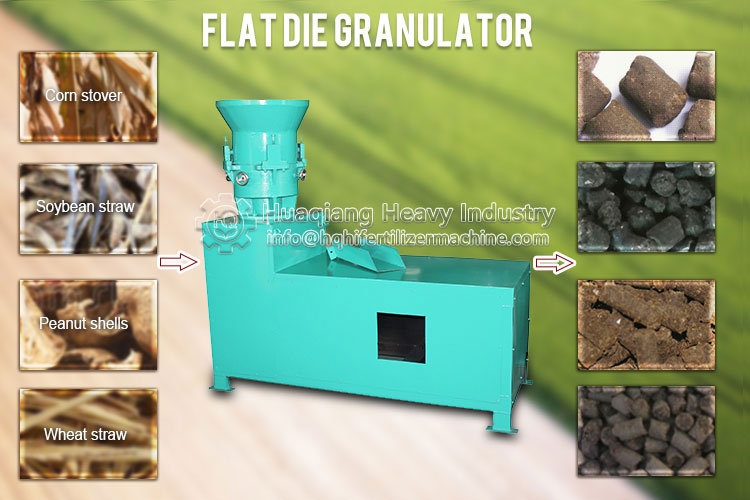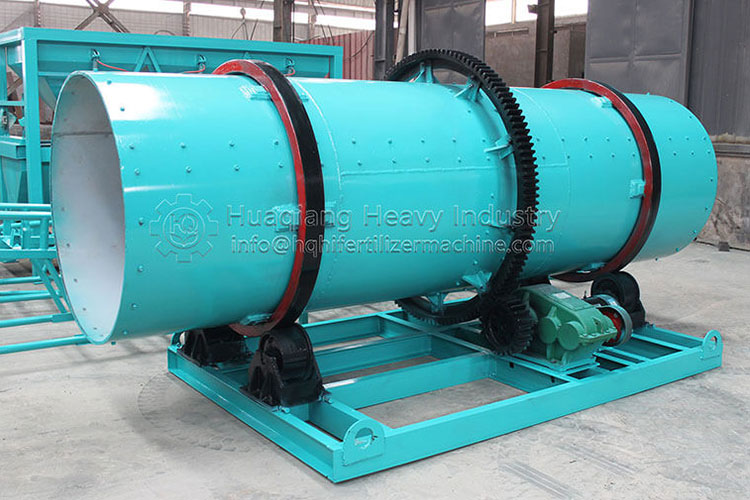Advantages of Bio-Organic Fertilizers
Date:2024/08/05
Bio-organic fertilizer, an innovative product that combines traditional organic fertilizer with modern biotechnology, is gradually showing its unique charm in the field of agriculture. It is based on the compost material, cleverly added functional microbial agent for secondary fermentation, and finally rich in a large number of functional microorganisms and comprehensive nutrient elements of organic fertilizer.
Compared to chemical fertilisers:
The nutrient elements of bio-organic fertilizer are more complete, which can not only meet the basic needs of crop growth, but also effectively improve the soil structure and regulate the micro-ecological balance between soil and roots. The improvement of this balance further enhances the resistance of crops to pests and diseases, thus improving the quality and safety of agricultural products while reducing the use of chemical pesticides. In addition, the advantages of bio-organic fertilizer in soil enrichment and product quality improvement are unmatched by fertilizers.
Compared to agricultural fertiliser:
The fundamental advantage of bio-organic fertiliser is that the functional bacteria in bio-organic fertiliser have specific effects on improving soil fertility and promoting crop growth,while agricultural fertiliser is naturally fermented and does not have the special effects of superior functional bacteria.
Compared to simple bacterial fertilisers:
Bio-organic fertilizers contain not only functional bacteria, but also organic matter. These organic matter is not only beneficial to the soil itself, but also the ideal living environment for functional bacteria. Therefore, after application, functional bacteria can quickly colonize and play a role in the soil, effectively avoiding the problem of bacterial death or functional failure caused by unsuitable soil environment. In contrast, simple bacterial fertilizers contain only functional bacteria, and if the soil lacks the necessary organic matter support, the bacteria may not survive or perform as intended. In addition, from an economic point of view, bio-organic fertilizers are often more economical than pure biofertilizers.
Introduction of organic fertilizer granulation technology:
In order to further improve the use effect and convenience of bio-organic fertilizer, granulation technology is widely used in its production process. The following are several common organic fertilizer granulators and their characteristics:
Fertilizer Granules Compaction Machine:

The granulator extrudes the raw material through two rollers that rotate relative to each other to form a granular fertilizer. Its operation is simple, production efficiency is high, and can produce solid particles, not easy to break bio-organic fertilizer.
Flat-Die Pellet Machine:

The Flat-Die Pellet Machine uses the combination of the flat die rotation and the press roll to press the raw material into uniform particles. It is suitable for the pursuit of high precision and high-quality particles, and can produce a smooth surface and well-formed bio-organic fertilizer.
Rotary Drum Granulator:

Through the rotation of the drum and the action of the internal components, the raw materials are gradually reunited into particles. Its granulation process is gentle, not easy to destroy the nutrients in the raw material, and can handle a variety of types of raw materials, including materials containing a certain humidity. When producing bio-organic fertilizer, the Rotary Drum Granulator can ensure the uniformity and stability of the fertilizer.
Compared to chemical fertilisers:
The nutrient elements of bio-organic fertilizer are more complete, which can not only meet the basic needs of crop growth, but also effectively improve the soil structure and regulate the micro-ecological balance between soil and roots. The improvement of this balance further enhances the resistance of crops to pests and diseases, thus improving the quality and safety of agricultural products while reducing the use of chemical pesticides. In addition, the advantages of bio-organic fertilizer in soil enrichment and product quality improvement are unmatched by fertilizers.
Compared to agricultural fertiliser:
The fundamental advantage of bio-organic fertiliser is that the functional bacteria in bio-organic fertiliser have specific effects on improving soil fertility and promoting crop growth,while agricultural fertiliser is naturally fermented and does not have the special effects of superior functional bacteria.
Compared to simple bacterial fertilisers:
Bio-organic fertilizers contain not only functional bacteria, but also organic matter. These organic matter is not only beneficial to the soil itself, but also the ideal living environment for functional bacteria. Therefore, after application, functional bacteria can quickly colonize and play a role in the soil, effectively avoiding the problem of bacterial death or functional failure caused by unsuitable soil environment. In contrast, simple bacterial fertilizers contain only functional bacteria, and if the soil lacks the necessary organic matter support, the bacteria may not survive or perform as intended. In addition, from an economic point of view, bio-organic fertilizers are often more economical than pure biofertilizers.
Introduction of organic fertilizer granulation technology:
In order to further improve the use effect and convenience of bio-organic fertilizer, granulation technology is widely used in its production process. The following are several common organic fertilizer granulators and their characteristics:
Fertilizer Granules Compaction Machine:

The granulator extrudes the raw material through two rollers that rotate relative to each other to form a granular fertilizer. Its operation is simple, production efficiency is high, and can produce solid particles, not easy to break bio-organic fertilizer.
Flat-Die Pellet Machine:

The Flat-Die Pellet Machine uses the combination of the flat die rotation and the press roll to press the raw material into uniform particles. It is suitable for the pursuit of high precision and high-quality particles, and can produce a smooth surface and well-formed bio-organic fertilizer.
Rotary Drum Granulator:

Through the rotation of the drum and the action of the internal components, the raw materials are gradually reunited into particles. Its granulation process is gentle, not easy to destroy the nutrients in the raw material, and can handle a variety of types of raw materials, including materials containing a certain humidity. When producing bio-organic fertilizer, the Rotary Drum Granulator can ensure the uniformity and stability of the fertilizer.